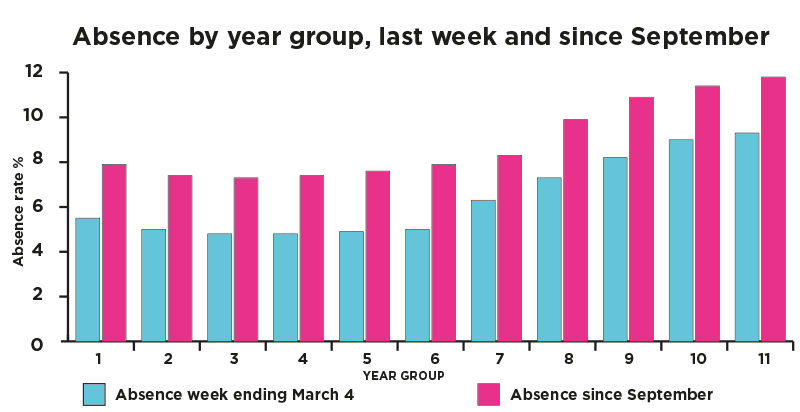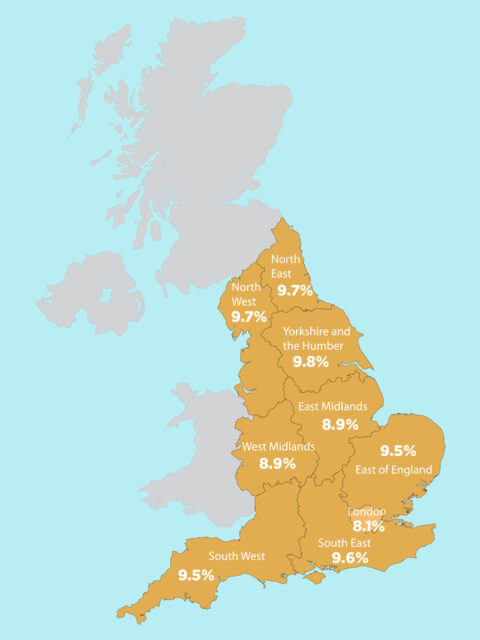Almost one in ten year 11 pupils nationally are still absent from school, with just two months to go until the start of GCSE exams.
Leaders said new research, shared exclusively with Schools Week, was “very worrying” and warned mitigations put in place to make exams fairer “may not be enough”.
Data from FFT Education Datalab’s new weekly attendance tracker shows 9.3 per cent of year 11 pupils nationally were absent in the week ending March 4, almost 60 per cent higher than the average for pre-pandemic spring 2019.
Since September, year 11 pupils have missed almost 12 per cent of sessions. They are due to start sitting GCSE exams in mid-May, albeit with some adaptations.

Geoff Barton, general secretary of the ASCL leadership union, said the attendance figures were “clearly very worrying because they show high levels of absence among students taking important exams this summer”.
‘Uneven playing field’ for absent pupils
Dame Alison Peacock, chief executive of the Chartered College of Teaching, said the data “illustrates how uneven the playing field is as we head into exam season”.
She also said the steps taken by government “may not be enough”, with a recent CCT member poll finding “most are not convinced that the early publication of exam guidance will help disadvantaged students”.
This week’s Department for Education data showed attendance last week across the country was higher than at any point since June 2021.
But headline data masks substantial variation on the ground and high staff absence. DfE data is also limited – only offering regional and local authority data once a term.
Charity launches attendance tracker website
FFT Education has now opened up access to a new attendance tracker website. It will allow all schools, researchers and the wider public to see weekly regional data from around 9,000 schools.
Richard Wyborn, director of marketing and communications at FFT Education, said schools previously had “little up-to-date national comparative data”.
He said differing absence rates across secondary year groups was “significant, with the highest absence rates at year 11. This is likely to have an impact on this year’s GCSE results.”
The DfE recently announced a trial of a live attendance tracker, which uses a “similar” approach to the FFT model, scraping data from management information systems.
“Collecting data directly from schools is, I believe, the way forward,” said Wyborn.
A Department for Education spokesperson said exams were the “best and fairest form of assessment, and we firmly intend for them to take place this summer.
“We know students have faced challenges during the pandemic, which is why we’ve put fairness for them at the forefront of our plans, with adaptations such as advance information as well as a more generous approach to grading than before the pandemic.”
















Your thoughts